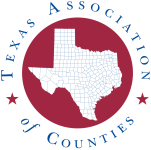News Article | January 13, 2023
Comptroller Releases Record Revenue Estimate
On Monday, Comptroller Glenn Hegar released the Biennial Revenue Estimate (BRE), projecting the state to have a record $188.2 billion available in non-dedicated general revenue funds for general-purpose spending in the two-year budget that begins Sept. 1. This represents a 26.3% increase over available revenue for the 2022-23 biennium.
Counting federal and other funds, Hegar projects the state will have $342.3 billion in total, or "all-funds," revenue in the next two-year cycle — an unprecedented 27% increase from the $270.5 billion he estimated two years ago. The all-funds estimate includes $108.4 billion in federal funds and $68 billion in revenue dedicated to specific purposes and, therefore, unavailable for general-purpose spending.
The BRE includes an estimated $32.7 billion general revenue surplus from the current two-year budget, which ends Aug. 31. This surplus will be reduced by any general revenue spending authorized in a supplemental appropriations bill for the current budget. Lawmakers adopt a supplemental appropriations bill each session to capture cost savings and fund shortfalls, typically increased or underfunded Medicaid costs.
Finally, $10.2 billion of the surplus is reserved for transfers to the State Highway Fund and the state's rainy-day fund (formally the Economic Stabilization Fund). These reserves would be $4.5 billion higher but for the constitutional limit on the rainy-day fund balance, which will likely be met in 2025.
The Comptroller's estimate is more revenue than lawmakers have had available to spend in any prior legislative session. Accordingly, Hegar cautioned that this kind of revenue increase, which results primarily from the highest level of price inflation seen in 40 years on sales tax receipts, is exceedingly unlikely to repeat. Therefore, he called this a "once-in-a-lifetime opportunity" for Texas.
Hegar's suggestions for state leadership and lawmakers include investing in the electricity grid, broadband connectivity, ports and skilled trade workforce development. He also suggested salary adjustments for state employees, teachers and nurses, continued funding for border security, and property tax reduction.
Constitutional and statutory spending limits restrain how much of this available revenue lawmakers may spend. Although unlikely, lawmakers may vote to exceed these limits. More likely, they could shift revenue to dedicated funds or reserves to which the spending caps do not apply. Finally, any increase in general revenue spending authorized by the supplemental appropriations bill increases the spending cap for the 2024-25 biennial budget.
Further details on the Biennial Revenue Estimate are available on the Comptroller's website. See Biennial Revenue Estimate and Infographics.
For more about this article and the 2024-25 budget process, please contact Zelma Smith.

